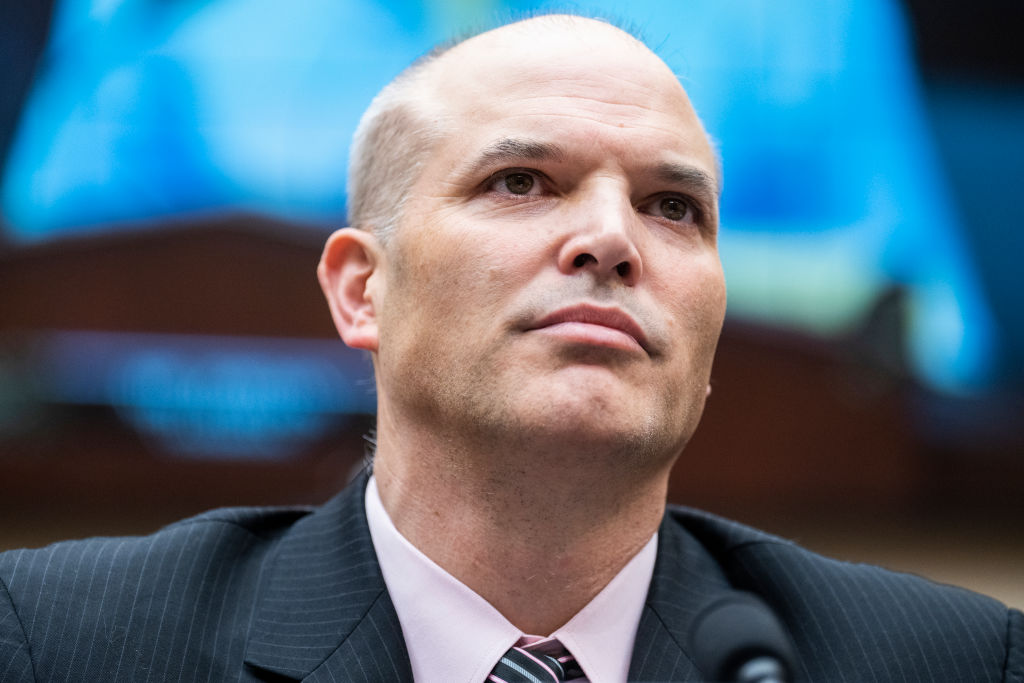For the illiberal left, it’s not enough that you submit to their cultural revolution. You must also underwrite it.
This happens not only at the state level, with issues such as abortion and public-school curricula, but at the private level as well. A good recent example includes efforts by certain Wikipedia editors to censor mentions of a journalism award handed out recently to the journalist behind the so-called Twitter Files.
Wikipedia: glad-handing for donations on the front end, while certain “master editors” censor factual events on the back end!
On November 1, journalist Matt Taibbi received a journalism award for his efforts to uncover the incestuous relationship between Big Tech and censorious federal apparatchiks. More specifically, for his part in casting a light on the government’s clandestine coordination with Twitter to censor inconvenient speech, the National Journalism Center, where I serve as program director, and the Dao Feng and Angela Foundation awarded Taibbi and his colleagues — former New York Times op-ed staff editor Bari Weiss and author Michael Shellenberger —a shared prize of $100,000 for excellence in investigative journalism.
In accepting the honor, Taibbi himself reiterated the purpose of the honor: to recognize journalism that challenges power rather than protect it.
“The journalism profession has become hopelessly politicized in recent years,” he said in his acceptance speech. “Editors now care more about narrative than fact and, as many of the people in this room know, there are now fairly extreme penalties for failing to toe party lines. This begins with pressures within the business to conform and continues with algorithmic targeting of advertisers.”
“Most of these algorithmic penalties are based on a complex credentialing system, a process Google calls ‘surfacing authoritative content,’” Taibbi continued. “This basically means that if you’re not recognized by certain ‘authoritative’ organizations, your work will not appear in features like Google News, Facebook’s news feed, the ‘For You’ bar on Twitter, or in many institutional search engines. This has the effect of de-amplifying politically unorthodox content, from conservative sites like the [Washington] Examiner or the New York Post to Consortium News or even the World Socialist Web Site. These sites are essentially consigned by algorithm to a separate set of Dewey Decimal shelves in the basement of the world’s library.”
This is the key point: these groups have been relegated to the basement precisely because they tend not to go along with “consensus” views; because they have a willingness to publish materials some find “offensive”; because they ask inconvenient questions. The shunning they experience from the corporate press and other “respectable” organizations has nothing to do with fact and reality, or a love for truth. It’s all about controlled narratives, ego, pride and ideology. This is why legacy media tend to package together outright lunatics with those who are merely skeptical of “consensus” positions — because lumping the latter with the former encourages onlookers from asking the further questions.
“It’s my hope and belief that the Dao Prize,” Taibbi concluded, “by giving such work recognition, can help begin the process of bringing suppressed factual journalism out of the basement. It’s my hope journalists will someday look back at this moment as a turning point.”
Since he first reported on the Twitter Files, Taibbi, who describes himself as a “run-of-the-mill, old-school ACLU liberal” and whose work previously included bylines at Rolling Stone magazine and multiple appearances on MSNBC, has been mocked, disparaged, slandered and accused of all sorts of ethical lapses by members of the corporate press. His peers should be envious that he uncovered a conspiracy between the federal government and Twitter. Instead, they have accused him of everything from being a stooge for billionaires to embellishing the details of the Twitter Files story for personal financial gain.
And all because he reported that two powerful and largely unaccountable entities were conspiring quietly against you.
The effort to malign Taibbi’s character, thus undercutting the creditability of his reporting, extends even to his Wikipedia page, where a “master editor” by the name of “SPECIFICO” attempted to remove mentions of Taibbi winning the National Journalism Center award for excellence in journalism.
“This is a partisan group of no distinction,” the editor argued. “Not a notable or credible award.”
The editor continued, explaining the edit, writing, “I reverted the addition of this item. Please] see the reason [in] my edit summary. It should not be re-added prior to consensus for inclusion.”
Another more sensible editor responded, “I am curious. How does one determine that an award is not ‘credible’?”
“SPECIFICO” declined to be specific.
In the end, more sensible heads prevailed, and the award is now visible on Taibbi’s page — but only after considerable debate about whether the award, which is considerable, deserved to be mentioned at all.
Mentions of the award never should have been scrubbed from the profile in the first place. Indeed, as one Wikipedia editor wryly noted, the initial censorship that clearly “intended to undercut the achievement” is an example of the exact type of thing Tabbi warned about in his acceptance speech.
“As Taibbi notes,” the editor writes, “the Dao Prize is a ‘significant new prize for old-school, fact-based reporting. The journalism profession has become hopelessly politicized in recent years.’ Wikipedia does not need to follow that trend.”
But this is how the modern illiberal left operates, if even reflexively. It’s to undercut, dismiss and shout down. If they can censor you entirely, then all the better. That they tend to do this while also demanding your hard-earned money is a detail that’s difficult to overlook. They twist the noose a little tighter, all while asking you to donate to the gallows upkeep fund.
For the modern illiberal left, submission is nice, yes. But it’s the ritual humiliation that really makes it worth getting out of bed in the morning.


























Leave a Reply